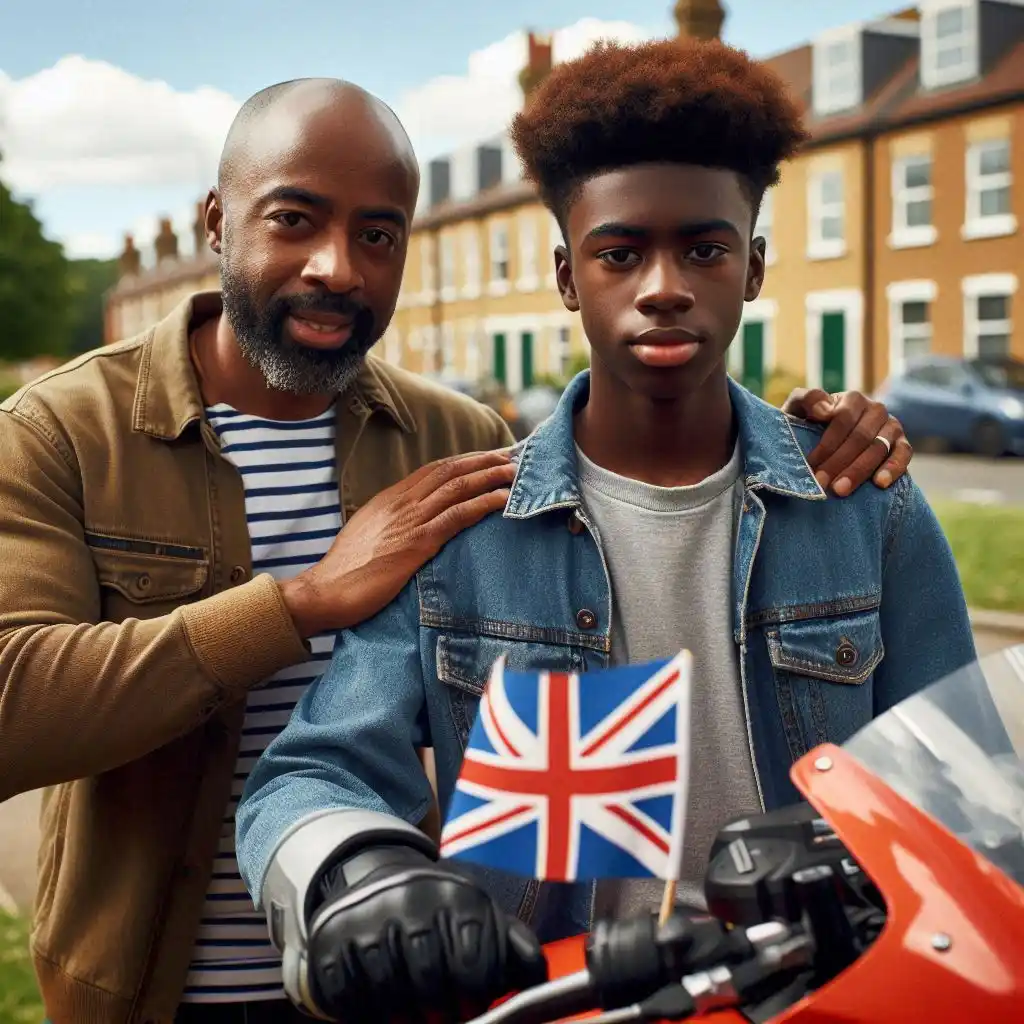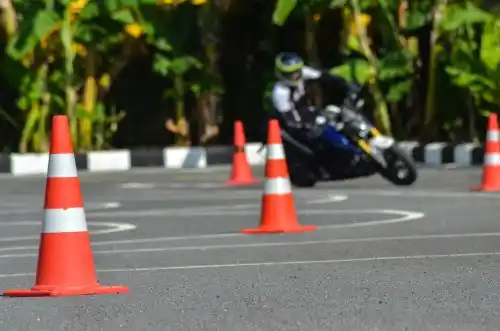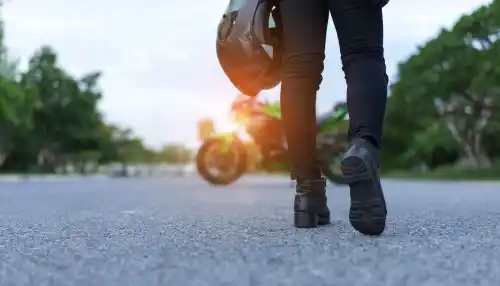Advice for parents or guardians booking CBT training

If you are a parent or guardian who is considering booking your child in for Compulsory Basic Training (CBT) then this page is for you. The fact that you are reading this article is great as it shows you are taking an interest in your child's safety and well-being. We have put together some advice for parents or guardians who are trying to achieve the best possible outcome for their child.
Why does my child need a CBT?
Compulsory Basic Training (CBT) was introduced in the UK in 1990 with the aim of reducing the number of road accidents involving learner motorcyclists. It serves as the foundational training that must be completed before riding a moped or a motorcycle up to 125cc on public roads. For your son or daughter this training will be cruicial to keeping them safe on the road. Many parents are naturally concerned about thier child riding a motorcycle or scooter, but with the right training and equipment, it can be a safe and rewarding experience.
Requirements for CBT
Before you get started with CBT, there are a few checkboxes your child need to tick:
- Age: your child will need to be at least 16 years old to ride a moped (up to 50cc), and 17 to ride a motorbike up to 125cc.
- Provisional Licence: your child must have at least a provisional UK driving licence which includes categories A or AM.
- Eyesight: Ensure their eyesight meets the legal requirements, which involves being able to read a number plate from a distance of 20.5 meters (with glasses or contact lenses, if necessary).
Choosing the Right Training School

Always book direct! This is very important. Book directly with your chosen motorcycle training company and pay them your money directly. There are other companies online that pretend to be real motorcycle training companies and simply pass on your booking to a real one once they have your money. This can cause you no end of problems if anything goes wrong.
We have all the motorcycle training companies across the UK on this site, so you can contact them directly. We can find the ones closest to you and you can book directly with them. Some even have online booking so you can book your child in now. Click here to find a local motorcycle training company. Make sure you choose a training school close to you. CBTs are regulated by the DVSA and have to start on time. If your child is late then they may not be able to take the CBT you booked and you will lose all the money you paid for it. The less distance your child has to travel the less chance they have of being late.
When making your booking....
- If you book online then make sure you use your childs' name, postal address and driving licence number. You can still use your own email address and phone number if you prefer so that any booking confirmation emails or text messages come to you instead. All good online booking systems will allow you to enter an extra note saying you are a parent booking on behalf of your child.
- Make sure they are old enough on their day of training. So for a 50cc moped CBT your child must have had their 16th birthday before the day of training, and for the main CBT you child must have had their 17th birthday before their CBT training day.
What your child will be doing on the day of training
CBT usually lasts a full day and is divided into five elements:
- Introduction and Eye Test: The instructor will brief your child on what to expect and ensure their eyesight is adequate.
- On-Site Training: They’ll learn about motorcycle controls, basic maintenance checks, and protective gear.
- On-Site Riding: This involves practical riding in a controlled environment focusing on manoeuvering, braking, and gear control.
- On-Road Training: Before heading out, key road rules and communication strategies will be discussed.
- On-Road Riding: Your child will go out onto public roads, putting theory into practice under the instructor’s supervision.
Our Tips for Success

- Make sure they can ride a push bike!: Balance is key to riding a motorbike and being able to balance on a pedal bike will really help you on the day. So dust off that bicycle in the garage and get them riding it again.
- Make sure they know the highway code: The better they know the highway code the more chance they have of passing their CBT. You can purchase a copy of the highway code in most bookshops, and there are many apps online that will help your child learn too. We also have some great free highway code training resources here.
- Help them Gear Up: Invest in quality protective gear – a helmet, jacket, gloves, trousers, and boots. Comfort and safety should go hand in hand. You can view our clothing guide here
- Help them arrive on time: Because CBTs are regulated by the DVSA they have to start on time. If your child is late they may not be able to take their CBT and you will lose all the money you paid for it.
After the Training
When your child completes their CBT, they will receive a CBT certificate valid for two years. This will allow them to ride a scooter or bike legally on the UK roads, but just make sure:
- Your child gets proper bike insurance.
- Your child will need to display 'L' plates clearly front and rear on their scooter, moped or motorcycle.
- They will need to re-take their CBT every two years unless they decide to upgrade their licence to a full motorcycle licence. We have a full guide to that here.
What happens if my child fails CBT?
Technically, your child can't "fail" a CBT. However, if the instructor feels they're not ready to ride safely on the road, they may ask them to return for additional training on another day before issuing their certificate. Please do not be angy if this happens. Top of their list is your child's safety and they will not let them ride on the road if they are not ready. If you have any concerns speak directly to the instructor or to the training school who will explain why your child needs more training.